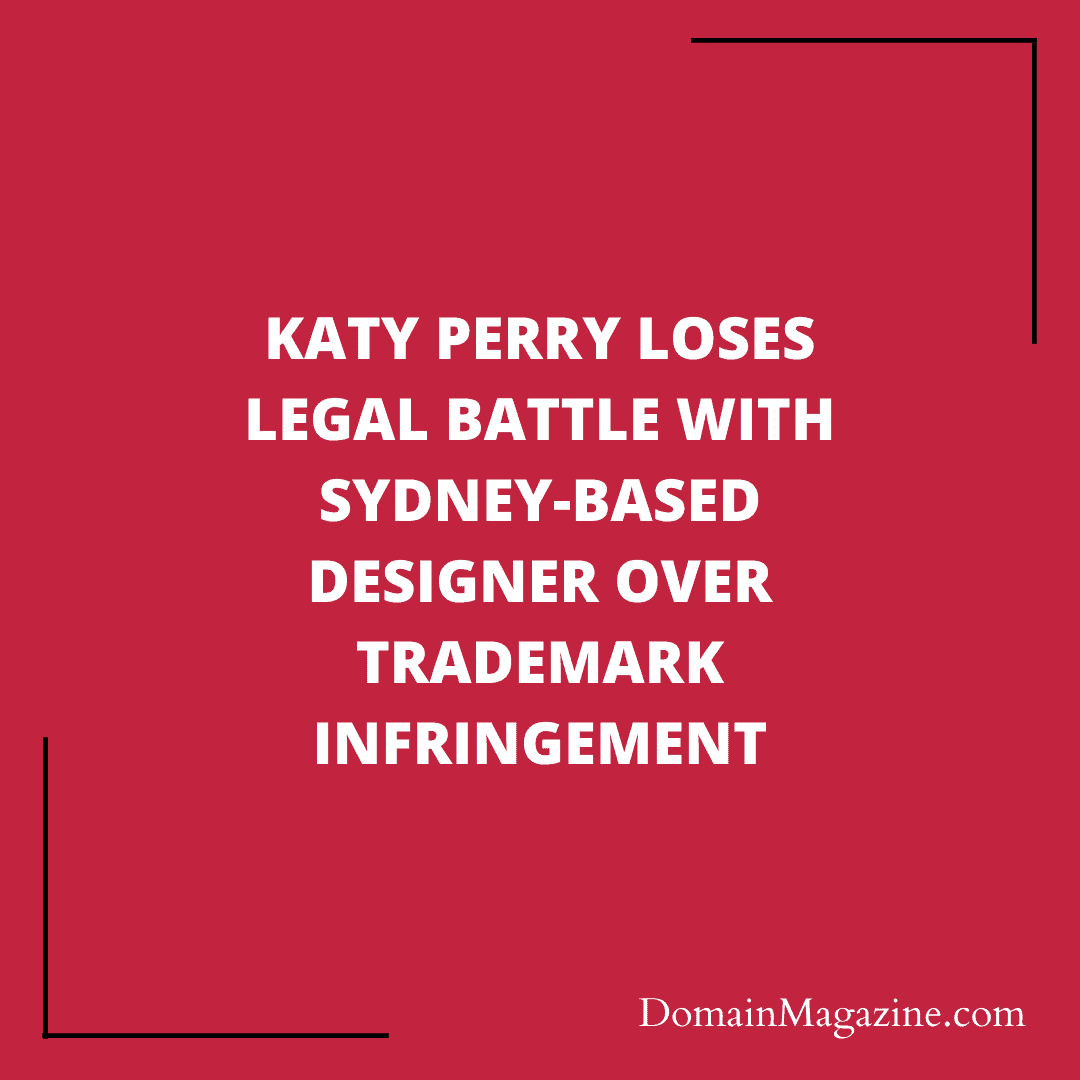US pop sensation Katy Perry recently lost a lengthy legal battle with an Australian fashion designer, Katie Jane Taylor, who claimed trademark infringement over the sale of clothes, including t-shirts and pyjamas, in Australia. Ms Taylor, who had been designing clothes in Australia for 15 years, alleged that Perry had infringed her trademark by using one that was “substantially identical to, or deceptively similar” to hers.
In this article, we will explore the details of the legal battle, its implications, and the impact it could have on the two brands involved.

Background
Katie Jane Taylor has operated a clothing label under her birth name, Katie Perry, since 2006 and held the trademark in Australia for over a decade. However, Perry’s company was found to have infringed the trademark after using it in social media posts promoting her Prismatic Tour in 2013 and 2014. Further infringements were found to have occurred during the singer’s 2014 and 2015 Prismatic Tour of Australia, at pop-up merchandise stores in Sydney and Melbourne. The trademark was also found to have been infringed on a website for merch company Bravado. However, Perry did not owe compensation to the Sydney designer as the trademark was used “in good faith”.
The Trial

During the trial, Ms Taylor’s barrister, Christian Dimitriadis SC, told the court that the designer began her business in 2006, “well before” she knew who the singer was and before she first heard Perry’s song on the radio in 2008. Ms Taylor had received “heavy-handed threats of litigation” in 2009 in the form of cease and desist letters, which prompted her to take her case public with a video message to the superstar on YouTube. Perry’s manager responded by saying the situation was “blown way out of proportion”.
The Verdict
Justice Brigitte Markovic released her judgment following the lengthy trademark dispute on Thursday, saying it was a “tale of two women, two teenage dreams, and one name”. The Federal Court justice ruled Ms Taylor had partially won her claims and dismissed a counterclaim by Perry and her company, Killer Queen LLC. Ms Taylor claimed infringements occurred eight times after 2013 through clothes sold at Myer, Target, and Cotton On, but Justice Markovic found these claims failed. Ms Taylor’s trademark was also not found to have been infringed through clothes sold on Amazon and eBay, and ahead of Perry’s Witness Tour in 2018.
Implications
The legal battle’s implications may affect both brands differently. While Perry will have to pay damages to Taylor, her brand is unlikely to be severely impacted by the verdict. Perry’s fans are loyal, and the case will not significantly affect her commercial success. However, it may impact her brand image if fans perceive Perry to have been in the wrong. On the other hand, Taylor’s brand may see a boost in popularity following the win. The victory could generate more publicity for her brand and increase her brand recognition, leading to more sales.
Conclusion
The legal battle between Katy Perry and Katie Jane Taylor has brought to light the importance of trademark registration for businesses. It also emphasizes the need for businesses to conduct a thorough search to ensure their brand names are not already in use by another company. While Perry’s fans are likely to remain loyal to her, the verdict may impact her brand image. For Taylor, the victory is a significant win for her brand, and it could lead to more sales and brand recognition. However, the impact of the verdict on both brands may not be severe, and they are likely to continue operating and thriving.


Join the Discussion